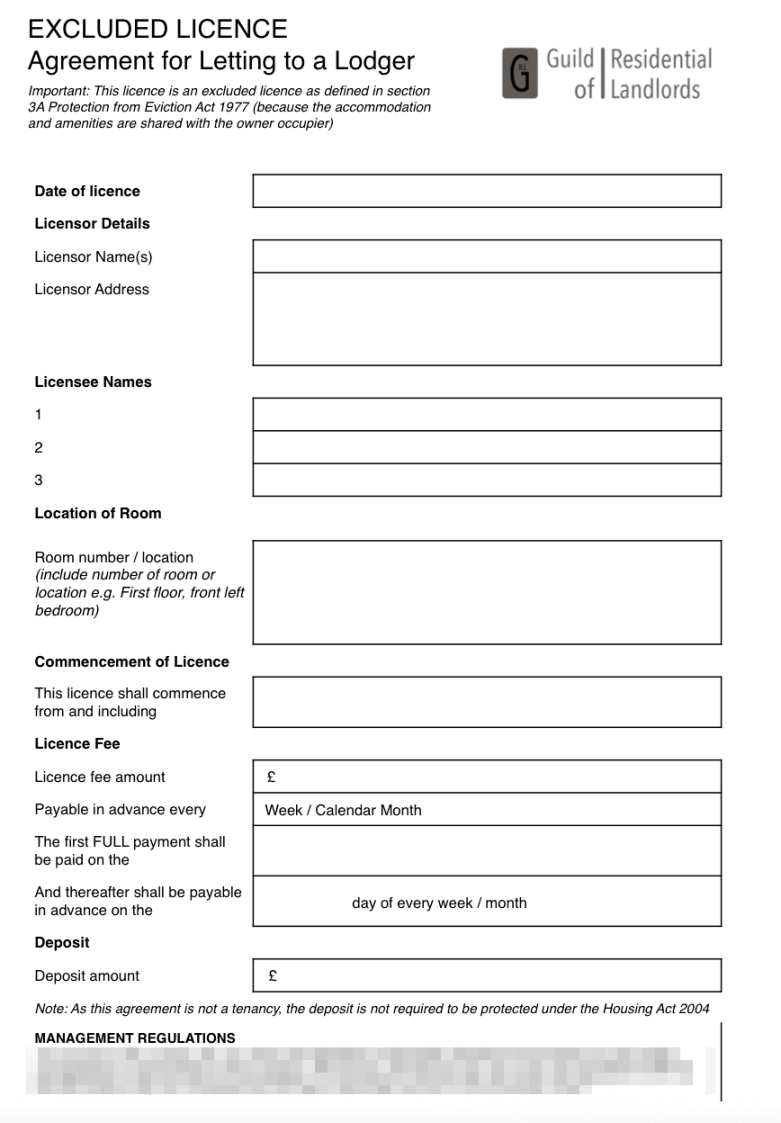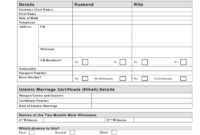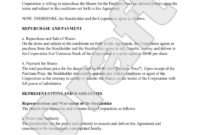Excluding Lodgers from a License Agreement: A Guide to Professional Template Design
An excluded license lodger agreement is a legal document that outlines the specific terms and conditions under which a lodger is permitted to occupy a property without becoming a tenant. This type of agreement is often used in situations where the property owner wants to maintain control over the premises while allowing someone else to live there.

Key Elements of an Excluded License Lodger Agreement
When designing an excluded license lodger agreement, it is essential to include the following elements:
Parties to the Agreement
Clearly identify the parties involved in the agreement. This includes the property owner and the lodger.
Term of the Agreement
Specify the duration of the agreement. This can be a fixed term or month-to-month.
Occupancy Rights
Clearly define the lodger’s occupancy rights. This should include the specific rooms or areas they are allowed to use and any restrictions on their use.
Rent and Payment Terms
Outline the rent amount, payment schedule, and any late payment penalties.
Utilities and Expenses
Specify who is responsible for paying utilities and other expenses, such as property taxes and insurance.
Maintenance and Repairs
Indicate who is responsible for maintaining and repairing the property.
Use of Common Areas
If the property has common areas, such as a shared kitchen or laundry room, outline the rules and regulations for their use.
Termination of the Agreement
Specify the conditions under which either party can terminate the agreement. This may include providing notice, paying a termination fee, or other requirements.
Governing Law and Jurisdiction
Indicate the governing law and jurisdiction for resolving any disputes arising from the agreement.
Entire Agreement
Include a clause stating that the agreement constitutes the entire understanding between the parties and supersedes any prior or contemporaneous communications, representations, or agreements.
No Assignment
Consider including a clause prohibiting the assignment of the lodger’s rights or obligations under the agreement.
Severability
Include a severability clause stating that if any provision of the agreement is found to be invalid or unenforceable, the remaining provisions shall remain in full force and effect.
Design Considerations for a Professional Template
When designing an excluded license lodger agreement template, consider the following design elements to convey professionalism and trust:
Font and Typography
Choose a font that is easy to read and professional. Avoid using excessive fonts or decorative elements that can make the document look cluttered.
Layout and Spacing
Use a clear and consistent layout with ample white space to improve readability. Avoid cramming too much text onto a page, as this can make the document difficult to follow.
Headings and Subheadings
Use headings and subheadings to break up the text and make it easier to navigate.
Language and Tone
Use clear and concise language that is easy to understand. Avoid legal jargon that may confuse the lodger.
Formatting
Use consistent formatting throughout the document. This includes using the same font size, line spacing, and margins.
Additional Tips
Consult with an Attorney: It is always recommended to consult with an attorney to ensure that your excluded license lodger agreement template is legally sound and protects your interests.
By following these guidelines and incorporating the key elements of an excluded license lodger agreement, you can create a professional and legally sound document that protects your rights as a property owner.


